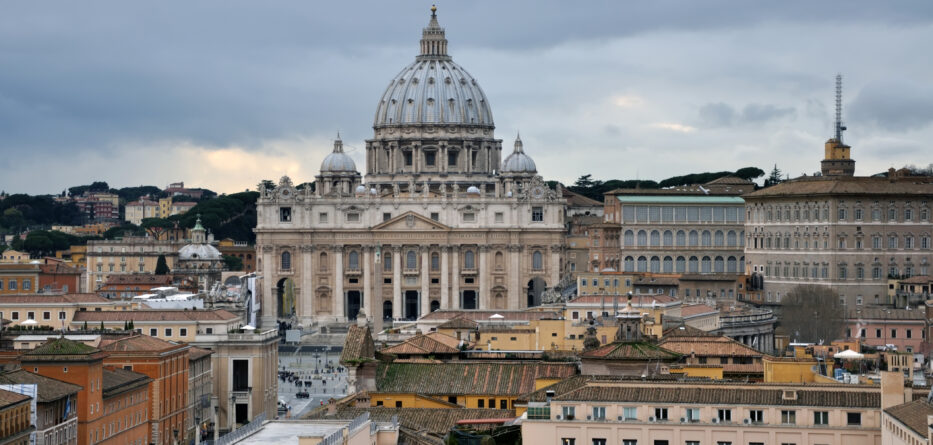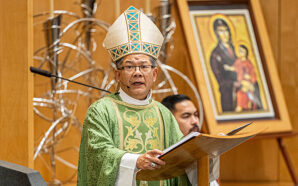A papal bull proclaiming a Jubilee Year in 2025 may, at first glance, seem peculiar, but Pope Francis’ declaration is not only meant as an invitation to hope but also remarkably pertinent in a society often overshadowed by an apocalyptic imagination.
The papal bull, a letter published recently by Pope Francis for the 2025 Jubilee, may seem like a quaint relic in the age of the Internet. But what is a “bull,” and what does a Jubilee Year mean in the 21st century? Not to mention indulgences, which still cause quite a bit of discomfort among our Protestant friends, recalling memories of Martin Luther’s Reformation.
The Jubilee theme, chosen by Pope Francis, was inspired by the Apostle Paul’s words: “Hope does not disappoint.” It’s enough to make many scoff, as they might think Catholics live in a carefree world, filled with rosy optimism and naive hope. Because who today dares to speak of hope?
RELATED: Pope proclaims Jubilee: ‘May hope fill our days!’
This papal bull aims to address a contemporary ailment: the fear that grips us in a society terrified by catastrophic prospects, with continuous news sites keeping us enslaved to our anxieties and paralyzing us. The malaise of the century is this apocalyptic gnosis that invades us, between the “great demographic replacement” for some and the “great ecological collapse” for others, preventing us from thinking and trapping us in terrible helplessness.
Therefore, the declaration deserves closer examination. It proposes, in its Christian manner (religion does not have a monopoly on hope), a way out, to face reality rather than remain paralyzed by a terrifying future. In short, it helps us break out of our bubble. But it is neither a survival kit nor a self-help article. In a rightful reminder of the prophet Isaiah – “The Spirit of the Lord God is upon me, because the Lord has anointed me to bring good tidings to the afflicted; he has sent me to bind up the brokenhearted, to proclaim liberty to the captives, release to the prisoners, to announce a year of favor from the Lord” (Is 61:1-2) – the pope situates this Jubilee within its biblical origins, as an expression of the collective faith of a people.
RELATED: ‘A Jubilee grace’: Vatican announces Holy Year Indulgence
Christian hope thus fits into history, starting from the “signs of the times” because one does not rejoice alone. For example, Pope Francis speaks of a “social covenant” in which we are all engaged, resonating with the “social friendship” of his encyclical “Fratelli tutti.” It is not a political ideology either: hope here draws from something that transcends humanity. The papal bull suggests several avenues in which to seek this “social covenant”: sharing common goods (water, food), having concern for prisoners, canceling the debt of poor countries, caring for the elderly and lonely, openness to life and children, welcoming migrants, caring for the poor.
All these are paths to reclaim our human power. “The highest form of hope is despair overcome,” wrote George Bernanos. It is our capacity to respond with our actions and words to the uncertainty of the future, to make room for possibility. Hope indeed lies in our forgiveness, our projects, our encounters, where those famous signs of the times are found.
Reproduced with permission from La Croix International.








